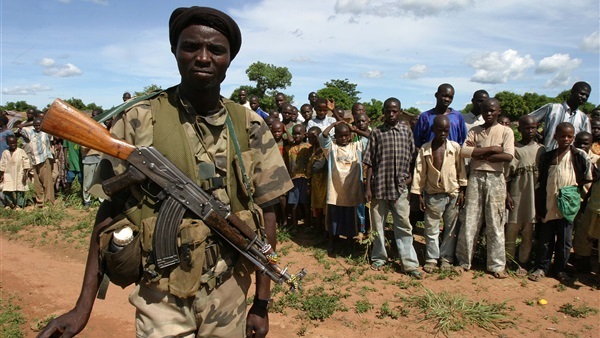Stability in Peril: Ramifications of Confrontations between the Chadian Army and Rebels

The report examines the
escalating violence in the northern regions, beginning in July 2023, which has
undermined efforts to achieve reconciliation and peace between the transitional
Chadian government and rebel movements.
It also explores the necessity of
coordinating with Libya to address the armed movements and the Libyan National
Army's actions against Chadian rebels in the southern Libyan desert.
After a period of relative calm,
hostilities have rekindled between the Chadian army and various rebel factions
along the northern borders between Chad and Libya. This resurgence comes after
a lull in fighting following the death of President Idriss Déby in April 2021.
In an effort to restore peace to
the nation, Transitional President Mahamat Idriss Déby initiated several
preliminary measures, including the amnesty of hundreds of rebels and
encouraging armed groups to participate in peace talks. In August, the
"Front for Change and Concord" announced the end of the ceasefire it
had declared in 2021 due to an attack by the Chadian military on one of its
bases, deeming it an act of war by the ruling Transitional Military Council.
In response, Transitional Chadian
President Mahamat Idriss Déby visited the conflict zone in the north and
personally pledged to lead operations against the rebel movement.
Escalation of Violence
Since July 2023, violence has gradually
intensified in several northern regions, leading to a week-long confrontation
between the Chadian military and rebels, resulting in the reported deaths of 23
rebels and 15 Chadian soldiers.
This renewed fighting has
hindered efforts to achieve reconciliation and peace between the transitional
Chadian government and rebel movements. President Mahamat Idriss Déby issued an
amnesty for 380 prisoners from the "Front for Change and Concord," a
group estimated to comprise between 1,000 and 1,500 members, in an attempt to
encourage their full participation in peace talks.
Coordinating with Libya
Due to the deployment of Libyan
Government of National Accord forces along the Chad-Libya border, Chad has
recognized the need for comprehensive coordination with Tripoli. President
Mahamat Idriss Déby met with Deputy Head of the Libyan Presidential Council
Musa Al-Koni and discussed the necessity of expelling armed groups from the
border region.
The Libyan National Army, under
the command of Field Marshal Khalifa Haftar, also launched an offensive against
Chadian rebels in the southern Libyan desert, following the rebels' seizure of
over 2,000 under-construction homes in the Umm al-Aranib area of Murzuq.
Challenges to Chad's Fragile
Stability:
Chad has been facing various
security challenges on multiple fronts. The northern border with Libya has seen
a resurgence of rebel movements. Furthermore, the threat of terrorism from the
Nigerian group Boko Haram around Lake Chad, along with communal violence in the
east, center, and south of the country, presents a formidable challenge to the
fragile stability the transitional government is striving to establish while
initiating wide-ranging transitional measures.
Conclusion
The ongoing confrontations
between the Chadian army and rebel movements, coupled with regional tensions
and security challenges, pose a significant threat to Chad's stability and the
transitional government's efforts to establish peace. It is imperative for all
stakeholders to prioritize dialogue and diplomatic solutions to prevent further
escalation of violence and destabilization in the region.







